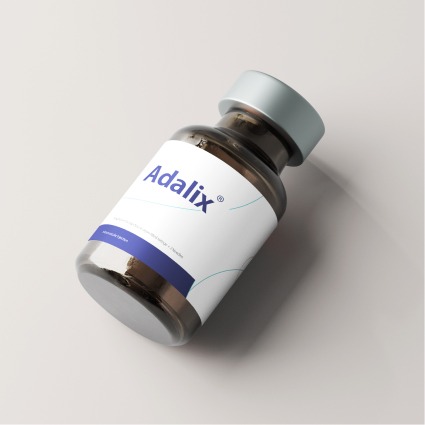Introduction
Rheumatoid arthritis (RA) is a chronic autoimmune disorder that leads to significant joint pain and damage, affecting millions worldwide. Traditional treatments, such as corticosteroids and methotrexate, have been the mainstay of RA management but often come with significant side effects and limited efficacy. Recent advancements in monoclonal antibody therapies offer new hope by providing more targeted and effective management of RA with fewer adverse effects. This article compares monoclonal antibody therapy with classic RA treatments, focusing on their mechanisms of action, side effects, and market presence, particularly in the Gulf Cooperation Council (GCC) region.
Understanding Rheumatoid Arthritis
RA is an autoimmune disease characterized by chronic inflammation of the joints, leading to joint damage, pain, and disability. The exact cause of RA remains unknown, but it is believed to result from a combination of genetic, environmental, and hormonal factors. The immune system mistakenly attacks the synovium—the lining of the membranes surrounding the joints—leading to inflammation and thickening of the synovium. Over time, this inflammatory process can destroy cartilage and bone within the joint.
Mechanisms of Action
Traditional Treatments
Traditional treatments for RA include corticosteroids and disease-modifying antirheumatic drugs (DMARDs).
- Corticosteroids: These drugs work by broadly suppressing the immune system to reduce inflammation and immune responses. They act quickly but affect various immune cells and pathways, leading to a wide range of side effects.
- DMARDs: These drugs reduce the proliferation of immune cells and have anti-inflammatory effects. For example, methotrexate inhibits dihydrofolate reductase, which is crucial for DNA synthesis and cell replication.
Monoclonal Antibody Therapy
Monoclonal antibodies are laboratory-produced molecules designed to bind specifically to certain proteins involved in the immune response. By targeting these proteins, monoclonal antibodies can modulate the immune system more precisely and reduce inflammation.
- Specific Targeting: Monoclonal antibodies work by targeting specific components of the immune system. For example, some monoclonal antibodies inhibit tumor necrosis factor-alpha (TNF-α), a cytokine involved in systemic inflammation. By binding to TNF-α, these antibodies prevent it from interacting with its receptors on cell surfaces, reducing inflammation and immune response specifically related to RA.
Side Effects
Traditional Treatments
Traditional RA treatments often come with significant side effects, especially with long-term use.
- Corticosteroids: Prolonged use can lead to severe side effects, including osteoporosis, weight gain, diabetes, hypertension, and increased susceptibility to infections due to widespread immune suppression. These side effects limit the long-term use of corticosteroids.
- DMARDs: Common side effects include liver toxicity, bone marrow suppression, gastrointestinal issues, and increased risk of infections. Regular monitoring is required to manage these risks.
Monoclonal Antibody Therapy
Monoclonal antibodies are generally well-tolerated but can include injection site reactions, respiratory infections, and headaches. Long-term use may lead to a higher risk of certain infections and malignancies, but they are considered safer regarding systemic immune suppression compared to corticosteroids.
Efficacy of Treatments
Traditional Treatments
Traditional treatments like corticosteroids and DMARDs have been effective in managing RA, particularly in the early stages or in mild to moderate cases. However, they often fall short in severe or refractory cases. Patients frequently experience flares and progressive joint damage despite treatment.
Monoclonal Antibody Therapy
Monoclonal antibody therapies have demonstrated superior efficacy in reducing RA symptoms, improving joint function, and slowing disease progression compared to traditional treatments. These therapies offer substantial benefits for patients, particularly those who do not respond well to conventional treatments.
Comparative Analysis: Traditional vs. Monoclonal Antibody Therapy
Mechanism of Action
Traditional treatments like corticosteroids and DMARDs act broadly on the immune system, which can lead to a wide range of side effects and a higher risk of long-term complications. In contrast, monoclonal antibodies offer a more targeted approach, specifically inhibiting proteins like TNF-α involved in RA pathogenesis. This targeted action results in fewer systemic side effects and a more favorable safety profile.
Side Effects
The side effect profiles of traditional treatments are significant. Corticosteroids can cause severe long-term complications, and DMARDs require regular monitoring to manage their toxic effects. Monoclonal antibodies, while not without risks, generally present fewer and less severe side effects. Injection site reactions and mild infections are common but manageable compared to the severe systemic effects of traditional therapies.
Market Dynamics
Traditional treatments are widely accessible and cost-effective, making them a first-line choice, especially in resource-limited settings. However, the growing recognition of the benefits of monoclonal antibodies is shifting the market dynamics. In the GCC region, the adoption of monoclonal antibodies is increasing due to their superior efficacy and the improved healthcare infrastructure that supports advanced treatment options.
Monoclonal Antibody Therapy: A Game-Changer
Advantages Over Traditional Treatments
Monoclonal antibody therapies offer several advantages over traditional treatments:
- Targeted Mechanism: Monoclonal antibodies specifically target proteins involved in the inflammatory process, reducing the broad immune suppression seen with corticosteroids.
- Improved Efficacy: Clinical trials and real-world studies consistently show that monoclonal antibodies are more effective in managing severe RA and reducing disease activity.
- Better Tolerability: Patients generally tolerate monoclonal antibodies better, with fewer severe side effects compared to traditional treatments.
Notable Monoclonal Antibody Treatments
While there are several monoclonal antibodies used in RA treatment, adalimumab (Humira) stands out due to its extensive research, widespread use, and significant impact on patient outcomes.
Focus on Adalimumab
Efficacy and Case Studies
Adalimumab has been extensively studied and has shown remarkable efficacy in managing RA symptoms and improving patient outcomes. For instance, in a phase 3 study involving patients with moderate-to-severe RA unresponsive to methotrexate, adalimumab demonstrated significant improvements in joint pain, swelling, and overall disease activity. Patients treated with adalimumab showed higher ACR20, ACR50, and ACR70 response rates compared to those receiving placebo, indicating substantial reductions in RA symptoms and improved joint function.
Safety Profile
Adalimumab is generally well-tolerated, with a safety profile that compares favorably to traditional treatments. Common side effects include mild to moderate infections and injection site reactions, but these are manageable and less severe than the systemic side effects associated with corticosteroids and DMARDs. Long-term safety data also support its use, with many patients experiencing sustained benefits with manageable risks.
Market Impact
Adalimumab has become one of the best-selling drugs globally, reflecting its effectiveness and acceptance among healthcare providers and patients. In the GCC region, the adoption of adalimumab is rising, driven by its proven benefits and the increasing emphasis on modern, effective RA treatments.
The GCC Market: A Growing Demand for Advanced Therapies
Traditional Treatments in the GCC
Traditional treatments like corticosteroids and DMARDs have been widely used in the GCC region due to their cost-effectiveness and availability. However, the limitations and side effects associated with these treatments have led to a growing demand for more advanced and targeted therapies.
Adoption of Monoclonal Antibody Therapies
The healthcare infrastructure in the GCC region is rapidly advancing, with increased investment in modern treatments and technologies. This progress has facilitated the adoption of monoclonal antibody therapies, including adalimumab, which offers superior efficacy and safety profiles compared to traditional treatments. The rising prevalence of RA and the focus on improving patient outcomes are driving the adoption of these advanced therapies.
Case Study: Efficacy of Adalimumab in the GCC
A recent case study involved a 52-year-old female patient with moderate-to-severe RA unresponsive to methotrexate. After 12 weeks of adalimumab treatment, the patient achieved significant improvement in joint pain and swelling, with an ACR50 response and improved DAS28-CRP scores. This case underscores adalimumab’s potential to offer substantial benefits for patients with RA, particularly those who do not respond to traditional therapies.
Future Prospects of RA Treatment
Continued Research and Development
The field of RA treatment is continually evolving, with ongoing research and development focused on improving existing therapies and discovering new treatment options. Monoclonal antibody therapies represent a significant advancement, and future innovations may further enhance their efficacy and safety profiles.
Personalized Medicine
The future of RA treatment lies in personalized medicine, where treatments are tailored to the individual patient’s genetic and molecular profile. Monoclonal antibodies, with their targeted mechanisms of action, are well-suited for this approach, offering the potential for more effective and personalized treatment strategies.
Conclusion
The comparison between traditional treatments and monoclonal antibody therapies for rheumatoid arthritis highlights the significant advancements made in the management of this chronic condition. While traditional treatments like corticosteroids and DMARDs have played a crucial role in RA management, their limitations and side effects underscore the need for better options. Monoclonal antibody therapies, with their targeted mechanisms of action and favorable safety profiles, represent a significant step forward.
Adalimumab, in particular, stands out as a game-changing therapy. Its efficacy in reducing RA symptoms, improving joint function, and slowing disease progression, combined with its manageable side effect profile, makes it one of the best medications available for RA. The adoption of adalimumab in the GCC region reflects its potential to improve patient outcomes and enhance the quality of life for individuals suffering from this debilitating condition.
As research and development in monoclonal antibody therapies continue, the future holds promise for even more effective and targeted treatments for rheumatoid arthritis and other autoimmune diseases. The shift towards these advanced therapies marks a new era in RA management, offering hope and improved outcomes for patients worldwide.

